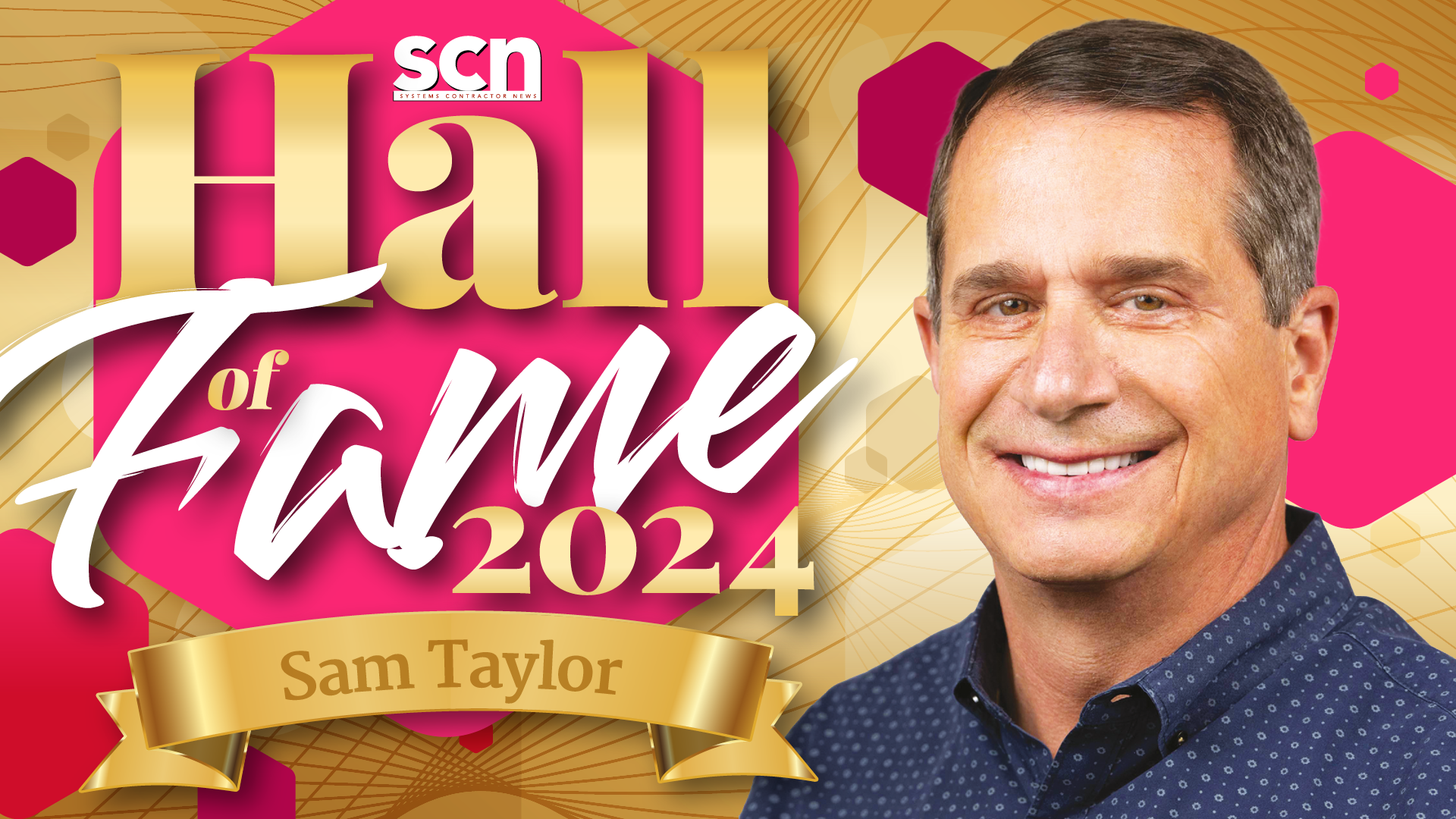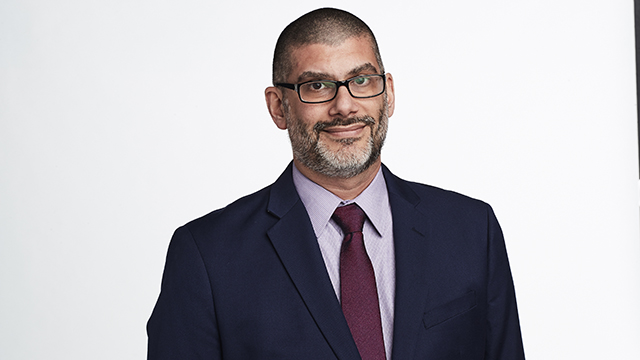Just keep swimming. That phrase can describe the 37-year career of Pro AV veteran Sam Taylor. Now set to enjoy the next phase—retirement—Taylor spends his time in the pool, kayaking, and growing his bourbon collection at his home in Kentucky.
Taylor's journey in Pro AV started in his youth, the self-proclaimed AV geek of his family. "If they had an AV problem, they would call me," Taylor explained. "I was the first person in my family to use the auxiliary input on my receiver and put my TV sound through the receiver instead of the TV."
[SCN Hall of Fame 2024: Lorne Trottier]
However, a career in AV wasn't necessarily in the cards. What he considered a hobby in his youth became a reality much later. Taylor went to Johns Hopkins University, graduated with a degree in material science, and went to work in the steel mills. That was in the 1980s, a time, Taylor said, that saw more people get laid off than promoted in the struggling steel industry.
Just keep swimming. After getting his master’s in computer science, Taylor wasn't ready to go into programming and design, so he went into sales instead, where he landed in Pro AV.
From 1987-2009, Taylor worked his way up the Electrograph ladder from regional sales manager to president. The company flourished under Taylor, rising from roughly a $4 million company to more than $500 million. But when the recession hit, Electrograph struggled. "2009 was the toughest year of my life," Taylor said. "I had to lay off 250 people and close a business down that I loved."
Just keep swimming. Within a few weeks of closing Electrograph, Taylor found a home at Almo. "That was the one that seemed most like Electrograph," Taylor explained. "It was family oriented and treated their people not like employees, but family. "[Almo] took a leap of faith because they hired me and 22 people [he brought with him], and we literally had no revenue, no customers, no vendors, and no inventory. And by the end of the first year, we had actually made money for the year."
“Together, we transformed an industry from one that was a direct business model to one that included distribution as its primary way of going to market."
Sam Taylor
Taylor was revolutionizing the Pro AV industry and making distribution something of value. "All the resellers wanted to be direct, and that was the model when I first started at Electrograph In 1987," Taylor said. "But we built a value-added distribution business, and along the way vendors saw the value add and so did our resellers. And now distribution is really the primary go-to market strategy for most vendors today."
He was a key figure in that fundamental change that reshaped Pro AV sales. This past fiscal year, his last with Exteris Almo, Taylor achieved a lifelong goal, reaching the $1 billion mark in revenue. One would think that was his crowning achievement. "I'm prouder of how many of those original 22 are still at Exertis Almo today," Taylor said. "That says a lot about Almo and the culture. I've enjoyed helping people develop their careers, and people have told me I've mentored them. I'm happy for many people that I know well in the industry that have grown their careers not just in my company, but people that I work with in other companies, too."
Just keep swimming, this time, quite literally. If you think retirement means Taylor can sit back and relax, think again. While training at the HBCU Kentucky State University, he volunteered his time to teach second graders how to swim. Unfortunately, the pool went into disrepair and became dormant.
"I thought about those second graders that didn't get swim lessons two years ago," Taylor said. "Now there's another class of second graders that didn't get swim lessons." That led Taylor to spearhead Swim with Purpose, a charitable fund with a goal to raise $1 million to repair the aquatic center.
[SCN Hall of Fame 2024: Joseph D. Cornwall]
After 37 years, Taylor can reflect and appreciate that he truly was a pioneer. But he will never take full credit for that.
"I didn't do it myself," Taylor said. "I had so many great people. I always tell people my strongest business skill was the ability to hire high-quality people. And then they stayed with me. Together, we transformed an industry from one that was a direct business model to one that included distribution as its primary way of going to market."

